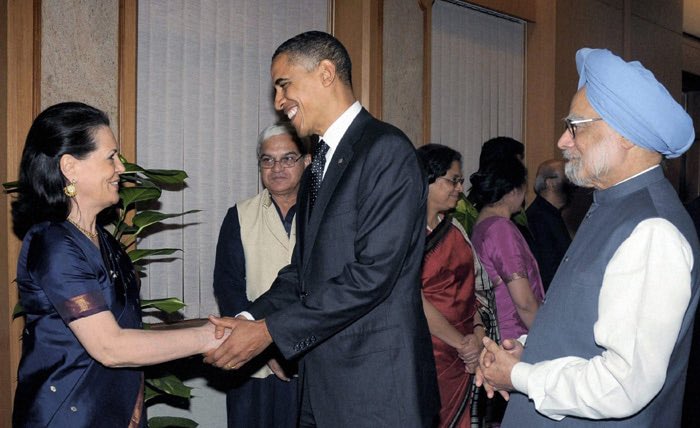Former US President Barack Obama's tell-all memoir 'A Promised Land' has been making waves since its release. From digs at Congress chief Rahul Gandhi to commentaries on India's problems with caste, poverty, rivalry with Pakistan, and political nepotism, the first part of the book has left many with their noses out of joint.
Obama has praised India's pluralism, its current stock of Opposition leaders and cultural heritage while stating that he was inspired by Gandhi and that he grew up listening to Hindu texts like the Ramayana and Mahabharata.
On the other hand, the 44th US President has criticised India as "a chaotic and impoverished place: largely divided by religion and caste, captive to the whims of corrupt local officials and power brokers, hamstrung by a parochial bureaucracy that was resistant to change".
Obama's memoir tracks Indian history since its independence, particularly Mahatma Gandhi whom he claims was the primary reason behind his fascination with India.
"More than anything, though, my fascination with India had to do with Mahatma Gandhi. Along with (Abraham) Lincoln, (Martin Luther) King, and (Nelson) Mandela, Gandhi had profoundly influenced my thinking," he wrote.
But despite being impressed by Mahatma Gandhi, whose "successful non-violent campaign against the British rule became a beacon for other dispossessed, marginalised groups", Obama commented that the Indian icon was unable to successfully address the caste system or prevent the partition of the county based on religion.
Obama is also full of praise for former Prime Minister Dr Manmohan Singh, a member of the "often persecuted Sikh religious minority". But he writes that Singh's ascension to the PM's chair, which is “sometimes heralded as a hallmark of the country’s progress in overcoming sectarian divides, was somewhat deceiving”.
"More than one political observer believed that she’d chosen Singh precisely because as an elderly Sikh with no national political base, he posed no threat to her 40-year-old son, Rahul, whom she was grooming to take over the Congress Party," Obama wrote.
Describing Singh as “wise, thoughtful, and scrupulously honest” and “man of uncommon wisdom and decency” with a white beard and a turban that “to the Western eye lent him the air of a holy man”.
He writes that with Singh, he developed “a warm and productive relationship” and forged agreements for cooperation on counterterrorism, global health, nuclear security, and trade despite a bureaucracy’s historic suspicion of the US”.
In the pre-released excerpt, Obama described meeting Sonia Gandhi and Rahul Gandhi at a dinner hosted by Singh, which is where the controversial lines are mentioned.
“But there was a nervous, unformed quality about him, as if he were a student who’d done the coursework and was eager to impress the teacher but deep down lacked either the aptitude or the passion to master the subject,” Obama stated.
Despite his unflinching negative assessments of India, Obama also wrote that in many respects, modern-day India counted as a success story, having survived repeated changeovers in government, bitter feuds within political parties, various armed separatist movements, and all manner of corruption scandals.
"The transition to a more market-based economy in the 1990s had unleashed the extraordinary entrepreneurial talents of the Indian people – leading to soaring growth rates, a thriving high-tech sector, and a steadily expanding middle class… and Prime Minister Manmohan Singh's economic reforms lifted millions out of poverty", he wrote.
Obama, however, adds, "Despite its genuine economic progress, though, India remained a chaotic and impoverished place: largely divided by religion and caste, captive to the whims of corrupt local officials and power brokers, hamstrung by a parochial bureaucracy that was resistant to change".
There isn't much on the BJP or even a mention of Narendra Modi in Obama's memoir, which covers his life till 2011. While the fact has already been publicised by opposition leaders like Congress's Shashi Tharoor, critics argue that this was just the first part of Obama's memoir. the next part is expected to pick up from after that and thus is expected to contain more on the Narendra Modi years under the Bharatiya Janata Party.



